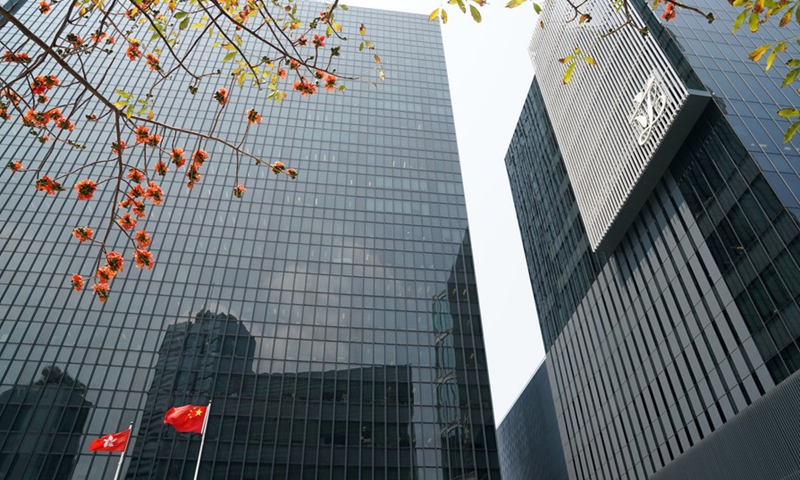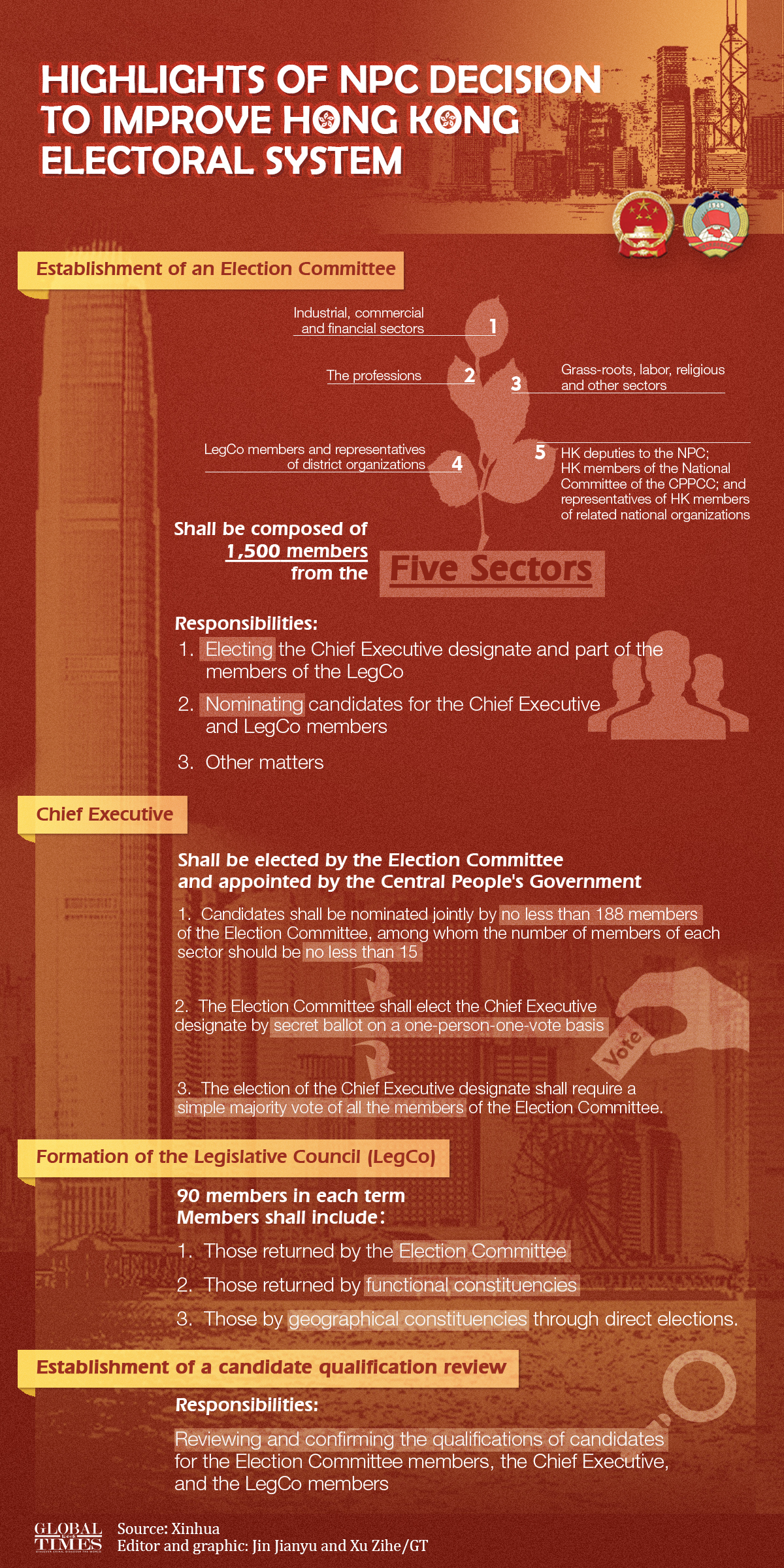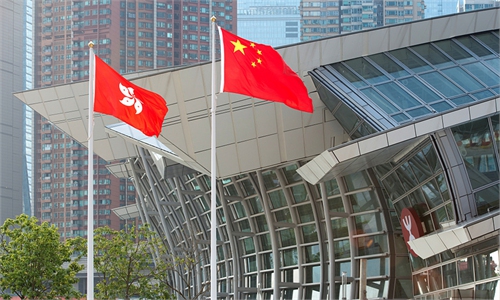
LegCo Photo:VCG
With the Legislative Council (LegCo) completing the review of a number of amendments as part of the improvement of the Hong Kong electoral system on Thursday, Hong Kong has been accelerating the process of ushering in a proper governance system in which only patriots run for public office, saving the city from rioting, citywide rampages, endless filibustering tactics from the radical opposition and the risk of color revolutions.
During the voting process, 40 lawmakers voted for the amendment bill, two voted against it. After three readings of the bill, relevant regulations will be signed by the chief executive of the HKSAR government and published in the Government Gazette before taking effect.
In took less than two months for Hong Kong's legislative body to finalize the local law amendments, including the amendment of eight main body articles and 24 auxiliary articles, laying out details for electing the Hong Kong chief executive and the formation of the LegCo.
This was also the fastest local law amendment process in Hong Kong, because with virtually no radical opposition in the local legislature, no one appeared to challenge the will and determination of the central government in safeguarding the national security and constitutional order of Hong Kong under the national security law and through the electoral reform in the city, observers said.
"Also, it's not something that started from zero. The top legislature has already laid out the fundamentals for the overhaul. What the local legislative body has to do is localize them as soon as possible," Tang Fei, a member of the Chinese Association of Hong Kong and Macao Studies, told the Global Times.

Highlights of NPC decision to improve Hong Kong electoral system Graphic: Jin Jianyu and Xu Zihe/GT
The milestone reform in closing the loopholes in the city's governance structure is widely considered as another significant step following the enactment of the national security law for Hong Kong in restoring the social order and rooting out the risks of color revolutions incited by external forces and their political proxies in Hong Kong and helping the city shake off endless political disputes and pressure from radical forces.
Some of the major changes involve the distribution of seats in LegCo, which now include 40 seats from the Election Committee, 30 from functional constituencies and 20 which are directly elected, with the number of seats increasing from 70 to 90.
The current seats of super district councillors have been scrapped, while newly added seats include HKSAR deputies to the NPC and HKSAR members of the National Committee of the Chinese People's Political Consultative Conference (CPPCC) - the top political advisory body - as well as representatives of Hong Kong members of relevant national organizations.
Also, a new section of 300 members has been added to the Hong Kong Election Committee, taking the total number of seats from 1,200 to 1,500. This section is comprised of HKSAR deputies to the NPC and HKSAR members of the National Committee of the CPPCC.
Lawmakers overwhelmingly approved the local law amendments, laying out the system fundamentals for the upcoming three elections - the election for the Election Committee on September 19, the election for LegCo on December 19 and the election for Hong Kong's chief executive on March 27, 2022. With radical opposition forces being continuously swept out of the local governance structure, the city has been moving into a fast and smooth track in advancing its political agendas in the coming months, observers said.
Senior officials in the HKSAR government vowed to work "day and night" to accelerate the law amendments and make sure that the upcoming elections go smoothly under the overhaul of the electoral system. With the reform helping sweep out radical lawmakers who had previously obstructed LegCo meetings with filibustering tactics, the LegCo has also become much more efficient in handling draft bills and livelihood-related proposals, Andrew Leung Kwan-yuen, president of LegCo, told the Global Times in an exclusive interview earlier this month.
"For example, recently when LegCo reviewed the Appropriation Bill, some lawmakers used to extend the meetings by filibustering. We spent hundreds of hours to review the bill. But this year, from the resumption of the second reading of the bill to the third reading to finish the review, we only took about eight hours," he said.
It has also become obvious that the political environment in Hong Kong has been changing rapidly under the national security law and the election overhaul over the past year, especially after China's top legislature disqualified four LegCo lawmakers last November who had notorious records for making trouble and being unpatriotic by inciting secessionism and colluding with foreign forces to endanger national security.
Also, in February, dozens of anti-government figures including some anti-government lawmakers and scholars were charged with subversion for being involved in organizing and planning the illegal primaries in 2020. One of the most symbolic cases is that of Hong Kong media tycoon Jimmy Lai, which underscored the government's unswerving determination to bring political life in Hong Kong back to the right track by eliminating the radical forces that advocate "Hong Kong independence", undermine China's sovereignty and seek the help of foreign forces in pressuring the central government by playing the Hong Kong card.
"The upcoming election agenda will also take place smoothly, as no one will challenge Hong Kong's political agenda led by the top authority," Tang said.


